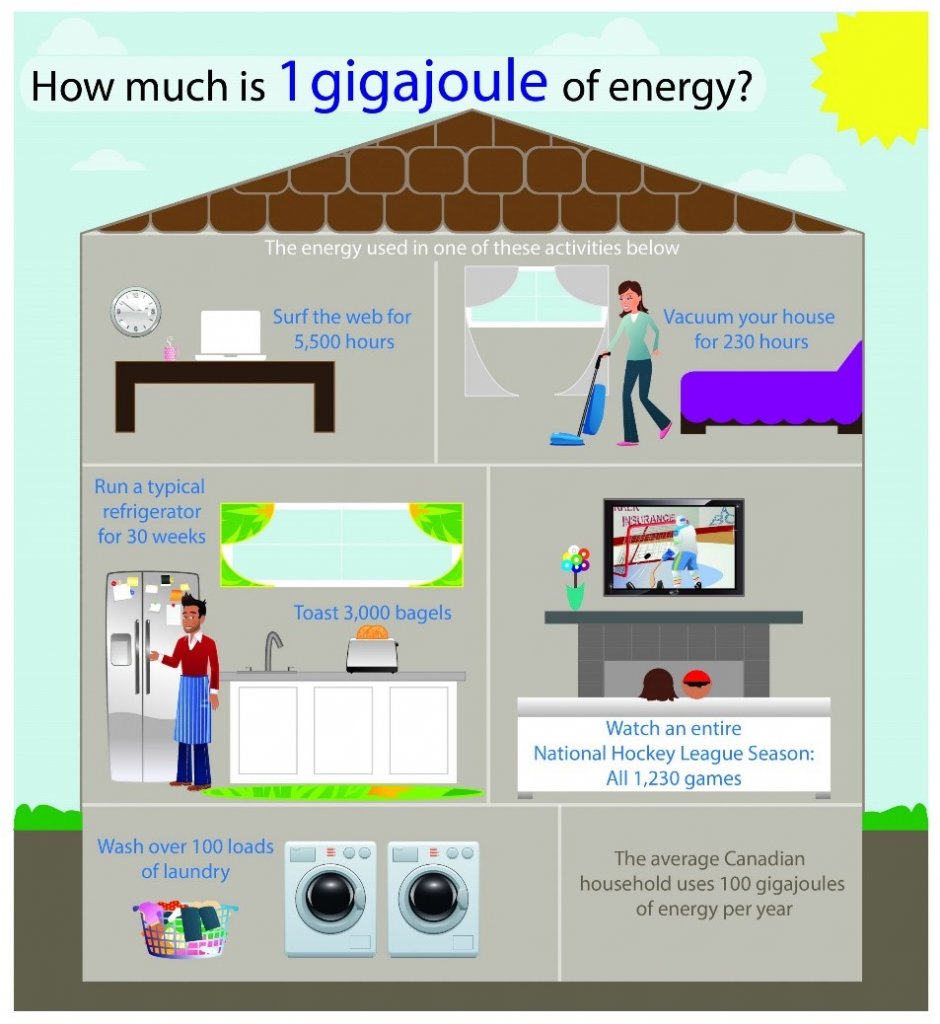The energy content in natural gas is typically measured in Gigajoules (GJ), a metric energy measure. All types of energy can be measured by either energy content or by volume. Energy content is the most accurate because it measures how much heat energy is provided by a given volume of energy. For example, 1 GJ of natural gas has the same amount of energy as 26.1 litres of fuel oil, 39.2 litres of propane, or 278 kilowatt hours of electricity. For reference, a standard 20 lb. propane tank used by most BBQs contains approximately ½ GJ of heat energy.
The Gigajoule is a useful unit of energy for comparing the amount and cost of heat energy provided by different types of energy; the Gigajoule is universal in that regard. The volume of any type of energy can be converted to GJ so they can be compared.
For example, while propane and fuel oil are both sold in litres, the heat energy provided by 1L of fuel oil is 50% higher than 1L of propane, so 26.1L of fuel oil and 39.2L of propane both contain 1 GJ of energy. Today, the energy cost for 1L of propane at $0.70/L and 1L of fuel oil at $1.05/L are equivalent – about $27.44/GJ. By comparison, the current delivered price for residential natural gas is $20.74/GJ, about 25% lower. Visit the rates for home and rates for business pages on our website to discover up-to-date equivalency pricing.
Even with all of that information, a GJ can still be hard to picture because energy can feel invisible. The average home in Nova Scotia uses 80 GJs of energy a year. If you drive a car, a 55L gas tank is a car contains 1.9 GJs of energy. Natural Resources Canada developed the visual below to outline what 1 gigajoule of energy is equivalent to.

Source: Natural Resources Canada
There is a lot that homeowners and businesses can do to reduce their energy consumption, such as installing energy efficient appliances, low-flow shower heads, or high efficiency furnaces or boilers. Click here to find more energy efficiency tips.
Back to News
